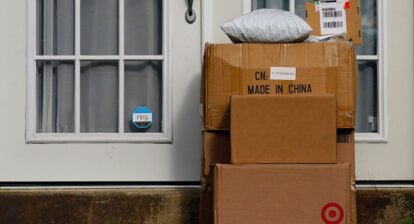
The urgent message behind Netflix’s “Adolescence” is getting lost in bad-faith arguments from the right trying to make the story about race.
Netflix’s new British drama, “Adolescence,” is an urgent plea about the state of boyhood that has taken the streaming world by storm.
While many, from children to parents alike, have been praising the show for its gut-wrenchingly honest portrayal of modern boyhood, there has been growing chatter among the right in both the US and the UK that the series is “anti-white propaganda.”
Some believe that the story in “Adolescence,” which chronicles what happens when a 13-year-old boy is accused of killing a girl in his class, is based on a true story about a Black migrant to the UK. Elon Musk even responded to a right-wing British commentator’s post originating the argument with “Wow” amplifying the claim’s audience further.
Speaking about the bad faith claims during an appearance on “The News Agent” podcast, the show’s co-creator Jack Thorne called them “absurd.”
“They’ve claimed that Stephen [Graham] and I based it on a story, and another story, so we race-swapped because we were basing it on here, and it ended up there, and everything else. Nothing is further from the truth,” he explained.
“I have told a lot of real-life stories in my time, and I know the harm that can come when you take elements of a real-life story and put it on screen, and the people aren’t expecting it,” he said, adding, “There is no part of this that’s based on a true story, not one single part.”
When asked how he’s been responding to the criticism that the main character, who is portrayed as a white male, should have been Black, Thorne said, “It’s absurd to say that this is only committed by Black boys. It’s absurd. It’s not true. And history shows a lot of cases of kids from all races committing these crimes.”
The argument is confusing further when you take into account how many Black characters there are in the series. The protagonist’s friend group is multicultural. The son of the detective investigating the main character’s crimes, who happens to be Black, ends up becoming a pivotal key player in the case. The slain girl’s best friend is also a Black student. All this to say, several key Black characters in the series are impacted from all sides. More to the point, the show is about the ways in which a young boy’s community, from his family to his friends to the corners of the internet he ends up on, can all fail him in tandem.
“We’re not making a point about race with this,” Thorne stressed. “We are making a point about masculinity. We’re trying to get inside a problem. We’re not saying this is one thing or another. We’re saying this is about boys.”
!function(){var g=window;g.googletag=g.googletag||{},g.googletag.cmd=g.googletag.cmd||[],g.googletag.cmd.push(function(){g.googletag.pubads().setTargeting(“has-featured-video”,”true”)})}();




